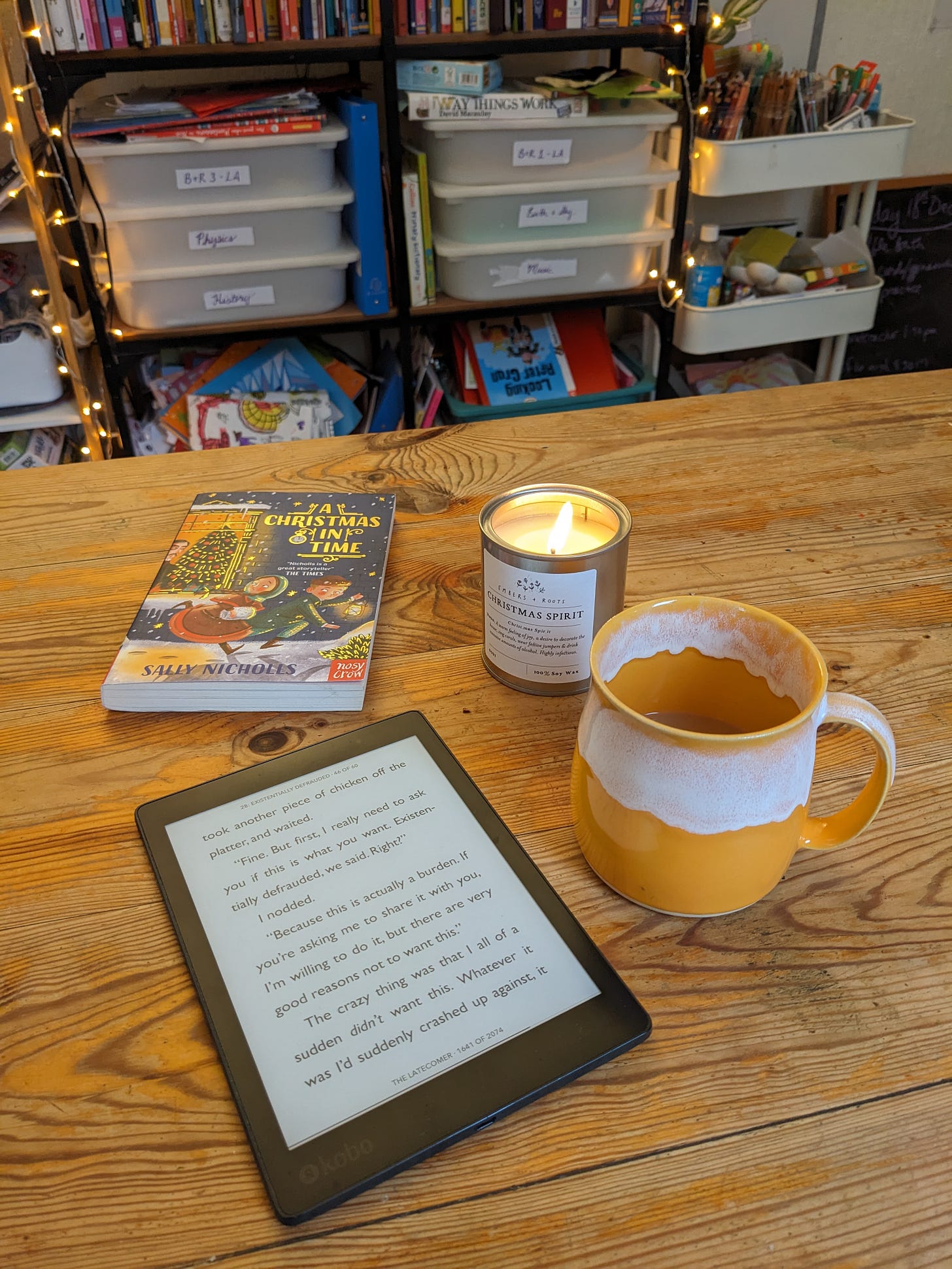I love talking about home ed and hearing what others are doing, even when their approach is different from ours. I hope that this summary of the highlights and challenges of our first term is entertaining and useful whether you’re a school family, unschoolers, or something in between!
Our first term is finished and we are all ready for a break - especially me. We’re relaxing into a couple of weeks of daytime baths, all day PJs, and no pressing commitments outside the house. We don’t need to keep to ‘terms’ as home educators, but we tend to because of the children’s lessons and classes which run on a standard school schedule. I find after almost 4 months of activity, we’re ready to shift into a couple of weeks where we have extra time for playing games, reading books, researching Pokémon (IYKYK), going on adventures, baking, and all the rest. It gives us all a chance to mull over the big ideas we’ve been engaging with during the term and think about what’s the best plan for the next few months.
In case you are new here, we are, I suppose, eclectic, consent-based, academic home educators with a strong affinity with Charlotte Mason and Dr. Montessori’s ideas. On a practical level, that means that we have ‘lessons’ each day based on the children’s developmental needs and interests, along with plenty of free time for play and relaxation. We read A Lot Of Books.
This year, A is 8 and in Year 4/ 3rd Grade and Birdie is 5 and in Y1/ Kindergarten.
I’ll start with the misses, or the things we’re leaving behind for now.
The Misses
This is our 5th year home educating so by now, I have a good sense of what works for us. There’s always surprises though - things I thought the kids would love that are a flop, and things that we don’t manage to fit into our schedule.
The main ‘miss’ this autumn term is global instrument study. I thought that a house of mini musicians would be keen, but they have their own musical rabbit hole1s they’re more interested in. We’ll dip into the listening portions of the curriculum throughout the year, but I won’t be offering the whole course systematically. I would heartily recommend the curriculum still - and we will use bits of it - but it doesn’t fit my kids’ interests at the moment.
Another ‘miss’ overall for us is modern language. I am struggling to find a Welsh tutor for the children and we haven’t made/found time to keep up our French. A’s expressed an interest in Spanish so I’ll explore this for the new year, although I find it hard not to see our years of French as a reason to plow ahead with what we already are building, even if by now it needs a good deal of refreshing. I am not sure what we’d need to drop to fit in a robust modern language study, and I’m very aware of the closing window for ease of picking up languages. A does do a bit of Welsh on Duolingo from time to time, and I read Welsh books/chat in Welsh at them, but beyond very basic conversation, there’s not much happening. This is a puzzle I’m determined to solve over the next term!
The plague has been utterly rejected as a topic of study. I was looking forward to it as part of our medieval studies, on a wider unit of medieval medicine. Making plague doctor masks! Making remedies! All sorts of fun. A took one look at the books and set a hard limit. No plague, and please hide or give away the books. Whether it’s the effect of being a Covid kid, or a personal sensitivity, I can’t tell. But the beauty of home ed is that if a topic makes my child feel alarmed or worried, we can just move beyond it.
I’ve not found the unicorn of spelling curricula yet, so for the time being we’re working through weekly spelling lists from Twinkl and chatting about spelling rules ast he come up in the lists. There’s not much natural review in this, and I’m not sure how much is being retained in the long term. We supplement with Nessy - a hit in the sense that the kids love it, and have learned something from it - but it’s not a comprehensive spelling program. The search continues.
And a final ‘miss’ has been what you might call ‘socialisation’ for Birdie. He’s only 5, so it’s early for him to have friends or social connections outside his immediate family. But I do feel slightly worried about his opportunities to make friends with children his age. He attends our co-op each week and goes to a music class with children his age, and feels like he knows plenty of children, but none of those situations has afforded him the opportunity to make any real ‘friends’. I recognise that this is largely a ‘me’ problem; he’s not pining for friends, and many children who attend school at this age form close friendships mainly as a sort of survival mechanism. However it's something I’m thinking about, because I feel strongly that the ‘natural socialisation’ that’s part and parcel of home ed doesn’t fulfil some children’s needs for actual, close companionship.
The Hits
Music, music and more music; online maths; Thinking Big; all the science
Keep reading with a 7-day free trial
Subscribe to Raising Feminist People to keep reading this post and get 7 days of free access to the full post archives.




